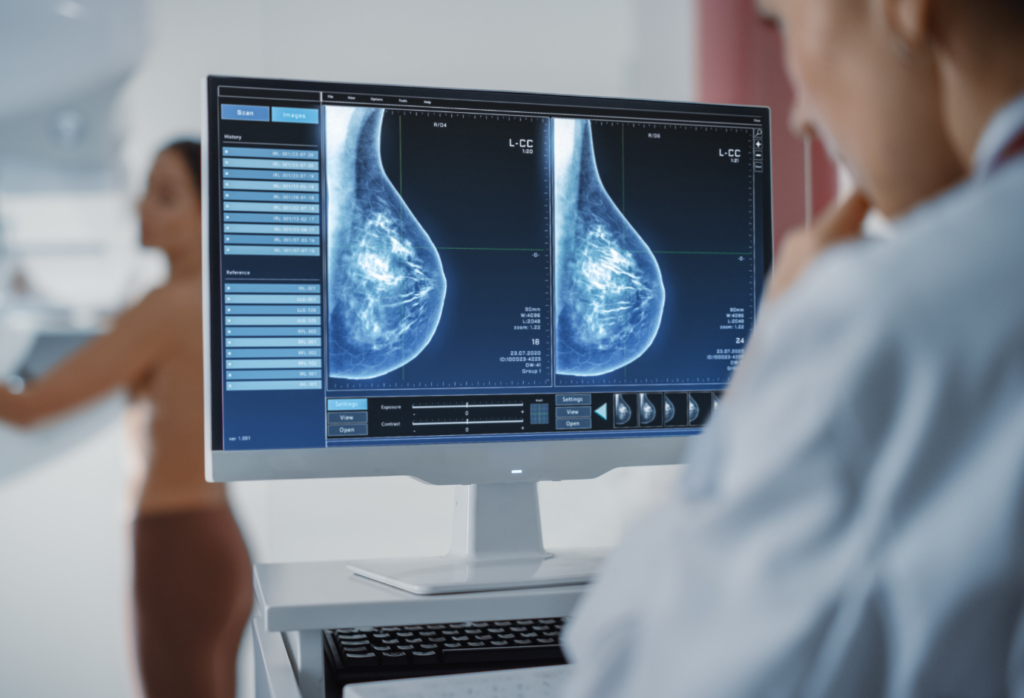Researchers in Germany believe they have found clear evidence that the use of AI in breast cancer screening increases the chance of the disease being detected.
Prof Alexander Katalinic and his colleagues from the University of Lübeck in northern Germany said their study is the first real-world test of the approach.
Previous studies have indicated the benefits that AI can bring to medical professionals in spotting cancer, from identifying abnormal growths in CT scans to detecting early signs of breast cancer in mammograms.
However, many of those previous studies did not use AI from the commencement of the research and were only employed to assess scans after they had already been studied by clinicians.
Prof Alexander Katalinic and his team looked at data from 461,818 women in Germany who took breast cancer screenings between July 2021 and February 2023 as part of a nation-wide initiative aimed at asymptomatic women aged 50–69.
Every scan was independently assessed by two radiologists, but for roughly half of them, at least one expert would use an AI tool for assistance.
The AI tool was able to label the scans it identified unsuspicious as “normal”, and also give a “safety net” alert when a scan it detected as suspicious was judged unsuspicious by the radiologist. In these “normal” cases, it also identified the area of the scan it suggests affords further scrutiny.
“We could improve the detection rate without increasing the harm for the women taking part in breast cancer screening,” Prof Alexander Katalinic, a co-author of the study, published in the journal Nature Medicine, told the Guardian.
“In our study, we had a higher detection rate without having a higher rate of false positives,” he continued. “This is a better result, with the same harm.”
In total, 2,881 of the women in the study were diagnosed with breast cancer, with the scans in the AI group receiving a 6.7 per cent higher detection rate.
However, when researchers factored in other aspects such as the age of the women and the radiologists undertaking their assessments, the detection rate rose to 17.6% higher for the AI group— 6.70 per 1,000 women.
By comparison, the rate of detection for women in the standard group was just 5.70 per 1,000 scans.
Swedish professor Dr Kristina Lång from Lund University told the Guardian, “The results are encouraging, but it is essential to ensure that we implement a method capable of detecting clinically relevant cancers at an early stage, where early detection can meaningfully improve patient outcomes.”
“Long-term follow-up is essential to fully understand the clinical implications of integrating AI into mammography screening,” she said.


